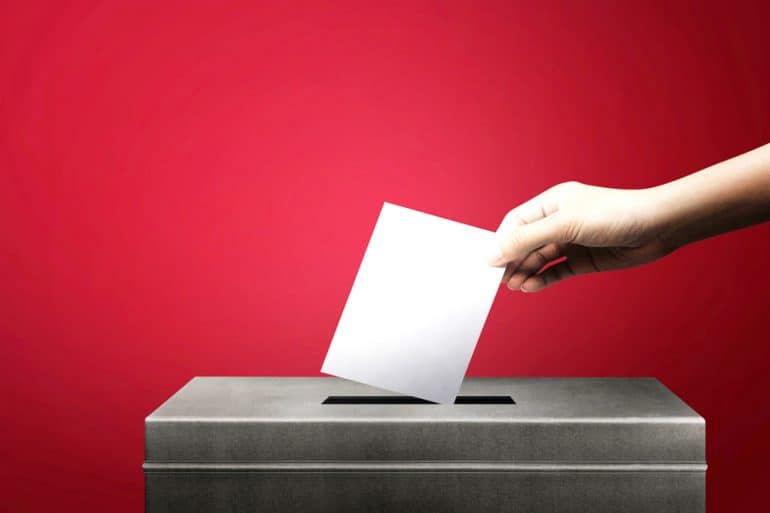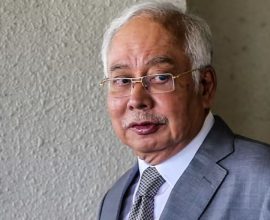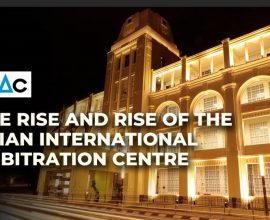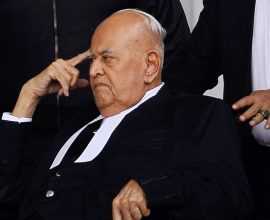Should the King trigger Fresh Elections?
Suppose 112 (or more) MPs ask the King to call for elections because of a hung parliament. Three questions arise: (1) When can the King do it? (2) How should the King do it, and (3) Should the King do it at all?
Snap elections because of a ‘hung Parliament’?
Several opposition politicians have called for a snap election. They complain of a hung parliament. A ‘hung’ parliament occurs when there is no outright winner, or when a party or a group of parties or MPs cannot form a coalition government.
If so, three questions arise
(1) When can the King do it?
(2) How should the King do it? and
(3) Should the King do it at all?
When can an election be triggered?
Fresh elections can be called under several circumstances:
(1) when the 5-year duration of Parliament’s life has ended;
(2) when the current prime minister calls for it by convention; or
(3) when there is a hung parliament and the King is asked to dissolve Parliament.
What if the King, on interviewing the MPs, decides to trigger elections?
There are several problems with this approach.
Trigger-1: A Coalition Government could still work out; so there may not be a ‘hung’ Parliament
In a situation such as this – where everyone is scrambling to set up ‘control groups’ to form a government – the King will usually allow a reasonable period to elapse.
He will wait to see if the MPs can form a coalition government, and if so, whether that will last.
Trigger-2: No one has formally asked the King to dissolve Parliament
The King cannot even think about dissolving Parliament unless someone has formally asked him to do it.
No one has.
Coalition governments built on a wafer-thin majority are, historically, dangerously frail.
Remember the Perak fiasco? Or Sabah?
So the PM has to run a tight ship.
Trigger-3: It is usually the serving PM who asks for a dissolution – and Mahathir has not
By a long-held custom – i.e. ‘by convention’ – it is usually the outgoing prime minister who asks for a dissolution of parliament.
Mahathir, the current PM, has not asked for it.
If the current PM cannot hold the coalition, or if he has a leaky vessel infested with rats leaping over the waters, then the first two triggers would have been activated.
The outgoing PM will have to see the King and say,
‘The coalition is not working, please dissolve parliament, and call for an election.’
Even then, the King has to wait.
Trigger-4: The MPs have not dissolved Parliament
There can be no elections unless Parliament is formally dissolved. When Trigger-3 has been activated (the outgoing PM informing the King he cannot form a viable coalition), then the King will, if he thinks it proper, call for the dissolution of Parliament.
Or the King can wait. He will usually wait.
That is the right thing to do.
Why?
If a second group of MPs wishes to visit the King with a long list of Statutory Declarations, then the King has to see that through.
As we all know, it will then be a Night of Long Knives.
Or, in a second scenario, the non-Coalition MPs can ask for a motion of no confidence against the current government and run the ship into a shoal.
That is a question for Parliament.
These two possibilities have not come to pass.
This is where it gets interesting – the King only has the power to ‘refuse’ dissolution
If the first four trigger points are crossed, then the King may exercise his personal prerogative under Article 40(2)(b). This is where it gets interesting.
That Article in the Constitution is odd. See it for yourself. This is what it says.
“Article 40: Yang di-Pertuan Agong to act on advice
Article 40(1) In the exercise of his functions under this Constitution … the [King] shall act in accordance with the advice of the Cabinet or of [the PM], except as otherwise provided by this Constitution; …
(2) The [King] may act in his discretion in the performance of the following functions, that is to say:
(a) …
(b) the withholding of consent to a request for the dissolution of Parliament;…”
Think about it. It gives the King the power to refuse the dissolution of parliament.
The King cannot on his own volition, pull the trigger. When someone asks him,
‘Please dissolve parliament, and call for an election’, the King can say, ‘No’.
Even then the King should say, ‘No’ – why?
First, the King has to give the PM a chance.
Second, the economy will be prejudiced.
Remember, as a result of the Opposition Group’s chicanery, some RM43.4 billion ringgit was wiped off out of our capital market in the first day of the crisis? 1https://www.theedgemarkets.com/article/political-drama-erases-rm434b-market-cap-bursa
We, as a nation, should be careful not to cause any ‘capital flight’, by giving foreign investors the jitters.
Third, the duration of Parliament’s life is only three years away.
Fourth, elections are terribly expensive. The Election Commission estimates elections costs at RM400 million. The King should avoid draining the Treasury.
Fifth, the rakyat themselves wish to give their coalition a chance to succeed.
Their electoral mandate should not be trampled underfoot.
It would be akin to despatching armoured tanks to run over a field of blooming roses.
In the upshot …
No one has formally asked the King to dissolve Parliament.
And so he does not have to give anyone any answer: not yet.
So at this stage, the King is not required to consult anyone, or any MP – and least of all, the Opposition Group.
One assumes therefore that the ‘royal interview’ is nothing more than mere courtesy.





